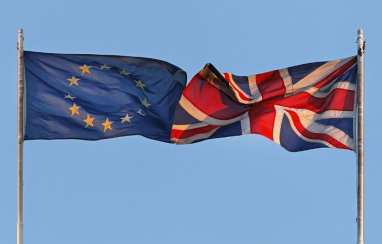- Жіночі легкі білі з чорним кросівки neonata adidas iniki 🆕 адідас інікі — ціна 1699 грн у каталозі Кросівки ✓ Купити жіночі речі за доступною ціною на Шафі , Україна #110935388 , neonata adidas primeknit cleats green and purple color
- The Global Destination For Modern Luxury
- adidas return period calendar today , Langcom? , Yellow adidas Originals Samba OG
- The adidas CRAZY BYW Gets a Luxury Makeover From Bristol Studio - StclaircomoShops - adidas campus adv grey six
- nike zoom griffey black and grey shoes gold women - insa Nike Air Force 25 Supreme Black @ Purchaze - IetpShops
- on feet air jordan 1 low chicago
- Nike Blazer Mid 77 Catechu DC9265 101 Release Date
- Travis Scott Air Jordan 1 High OG CD4487 100 Release Date Price
- air jordan 1 mid chicago 2020 554724 173
- air jordan 4 og fire red DC7770 160 release details price
- Home
- News and analysis
- Info hubs
- Events
- Video
- Case Studies
- About us
- Magazine
- Advertising
Produced for the industry by the Association for Consultancy and Engineering
Opinion
After Article 50, where are the politicians on Brexit?

As Brexit day dawns and the government kicks off the EU exit process for real, Christian Cosby looks at where the major UK political parties are at this moment and what Brexit means for them.
Will Brexit put rocket boosters on ‘global Britain’, free from the overweening presence of Brussels? Or will raising the drawbridge and close off trade with our key trading partners on the continent?
These questions will not be answered overnight and the reality is likely to be much more nuanced.
Rather than delve into the hotly contested and often unknowable territory of what the future holds, let’s take a glance at the current political landscape to see where our major political parties are at this moment and what Brexit means for them.
The Conservatives
Theresa May is faced with an extraordinary challenge. She is tasked with delivering a deal that balances a wide range of conflicting expectations and priorities, for Brexit means different things to different people.
Just one example comes from the Economist this week, which reports that Conservative voters are almost split down the middle on whether they would accept free movement of people in exchange for free trade. This is just a taster of the debate to come. Passing over this razor’s edge is undoubtedly going to test the PM’s political agility.
It is worth remembering that May has a slim working majority of only 16 MPs. Her backbenchers - particularly those of the restive, ‘hard Brexit’ persuasion - wield a great deal of power as a result, with the government’s Budget U-turn this month a case in point. Some Conservatives argue that a snap general election would put paid to this issue. But it is unlikely that the PM will want the added distraction of a general election while also trying the hammer out the Brexit deal with her EU counterparts.
Labour
The problem for Labour is this - three of the top six leave seats are Labour, while four of the top six remain seats are also Labour. The so-called ‘Highgate-Hartlepool’ alliance of the Blair era, when Labour could draw on support from a broad mosaic of social groups, is under strain. What kind of political alchemy can bind together areas with such different priorities?
Labour backed Theresa May’s Brexit bill through parliament with the objective of shoring up its leave-voting constituencies. There is a real fear that the north of England could go the way of Scotland if Labour is not seen to fight its cause.
In turn, this leaves Labour exposed in metropolitan remain seats. Labour’s shadow Brexit secretary, Keir Starmer, this week set out a six-point test to scrutinise any Brexit deal. Labour is hoping to reframe the debate away from the principle of Brexit towards whether the deal works for the country’s working people.
Liberal Democrats
Tim Farron, the Lib Dem leader, is in clover. The Liberal Democrats are able to set out their stall with ease. They are pro-remain, and support a second referendum on the terms of Brexit. They can bang the drum beat of remain with electoral impunity.
But this is only possible because their electoral base is so low. The party has nine MPs, so any gains from Labour and Conservative remain areas (such as the recent Richmond by-election) are significant victories.
But let us not forget that the party was in government less than two years ago. The prospect of this happening again any time soon is remote. The unitary and county council elections this year, as well as the Manchester Gorton by-election, will be a litmus test for the resurgent Lib Dems.
UKIP
UKIP may have won the war, but it is not winning the peace. Douglas Carswell, the party’s first MP in parliament, quit last week. He argued that UKIP had fulfilled its purpose now that the UK is withdrawing from the EU. In response, party leader Paul Nuttall argues that UKIP is now the ‘guard dog’ of Brexit: the Conservatives cannot be left alone to deliver a meaningful departure from the EU.
Turning to the polls, the Stoke Central by-election in February was a damp squib for UKIP, and the anticipated march on a Labour’s heartlands did not materialise this time around. But with the continued backing of canny political operator Nigel Farage, it would be premature to write off UKIP just yet.
Christian Cosby is a senior consultant, engagement, at Iceni Projects.





